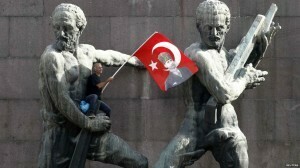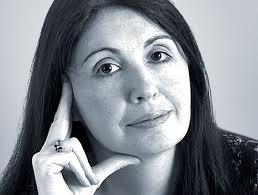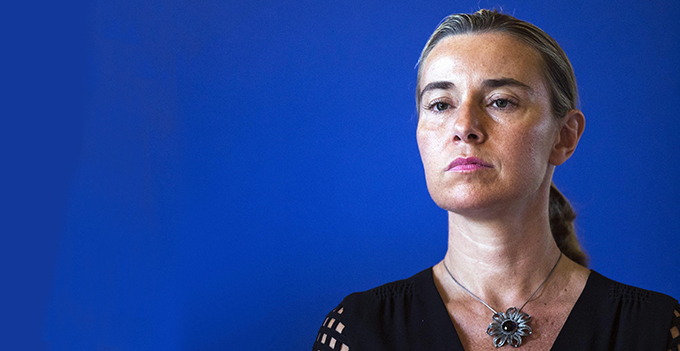A strong foothold in the country and lack of an alternative politician secure the Prime Minister
Interview with a researcher from the European Policy Center in Brussels, the leading Bussels expert on Turkey
“It is wrong to talk about a Turkish Spring; here there are democratic players who could intervene”

“It is highly improbable, practically impossible.” The possibility that the protests and the tension in Turkey these days would effectively cause the Prime Minister, Recep Tayyip Erdogan, to fall is seriously remote. According to Amanda Paul, a Policy Analyst for the European Policy Center, an expert on Turkey, the Prime Minister “simply has too much support inside his country” for this to happen. But there are other factors to take into consideration when we try to predict possible political consequences of what is happening…
Which ones?
We need to bear in mind that there is no strong or effective opposition that can challenge the Prime Minister and his party. After more than a decade, the main opposition – the Republican People’s Party (RPP) does not constitute a serious challenge to Erdogan’s Justice and Development Party (JDP). The fact that RPP is an “empty shell” was also one of the factors that contributed to JDP and Erdogan becoming ever more powerful and controlling in their style of governing because there is no adequate system of checks and balance.
So you think the protests will not limit Erdogan’s power in any way?
They can at least block his goal to rewrite the Constitution in a way that gives more power to the President for which he would then nominate himself.
The citizens’ protests began to defend Gezi Park but it is clear that there are also many other tensions. What are the root causes?
The Gezi Park protest was the spark that lit the bomb. For a long time now the ruling JDP has been taking advantage of its dominant position in Turkish politics, pushing through policies and laws as well as undertaking large projects without consulting other stakeholders and society in general. After more than 10 years in power, Erdogan increasingly views himself and his party as the sole, indisputable power, exerting control over the entire state apparatus. He seems to have forgotten that democracy is not just about elections, nor about the majority imposing its own will on others without respecting alternative points of view. The Prime Minister is shaping Turkey into a country that he – and his supporters – can identify with, almost completely ignoring the sensitivities and lifestyle of the other half.
There are those who say Erdogan is leading Turkey toward a “moderate Sharia”…
Certainly one of the main causes of the protests was the creeping conservative style policies that the government has been pushing as well as its increasing control over administration. This includes banning billboards in

Istanbul with bikini clad girls, removing tables at outdoor cafes because they encourage consuming alcoholic, and then recently the new law on alcohol that was not received well by a large majority of the population. Even if Turkey is far from Sharia type laws, the ruling elite give little consideration or respect to the parts of society who prefer a different lifestyle, which happen to include enjoying a glass of wine or beer without having to pay a high price for it.
Some are already speaking of a Turkish Spring. Do you see similarities?
No, the protests in Turkey cannot be compared to the Arab Spring and events that occurred in countries like Egypt. Those were guided for a long time by authoritarian leaders, not ones elected democratically and who deeply oppressed a large majority of their people. The comparison would be stretching reality. Here there are still democratic players with the power to intervene and contribute to a solution that could be efficient in a short period of time.
- Recep Tayyip Erdogan
Who are the Turkish protestors? Is it possible to do an Identikit?
The protestors come from all parts of the political spectrum. They range from young to old, from gay-rights activists to dissident but socially conservative Kurds. Their point of convergence is that all focus on what they don’t like about Erdogan and his party.
Do you think the situation will block dialogue for the process of Turkey joining the EU?
There is a lot of concern in Europe over developments in Turkey, in particular the police brutality toward protestors but there is also concern that the government has set aside its democratization agenda and fears that Erdogan wants to continue with his plans for a one-man controls all type of leadership…. The Eu was very explicit in communicating to Ankara that progress is needed regarding fundamental freedoms, including freedom of expression, freedom of assembly and media. They also mentioned that an “inclusive” approach toward decision-making, particularly on issues of potential contention and sensitivity. Clearly, these events are not going to help Turkey in the already stalled process of adhesion to the EU: those opposed to the concept will use it as proof that Turkey is quite far from meeting EU values and standards. In any case, since the EU and Turkey are so strongly interdependent in many areas, relations must continue in a proactive manner and remain very important.
Letizia Pascale










